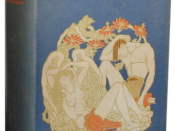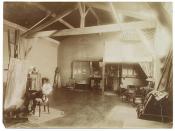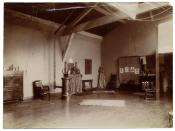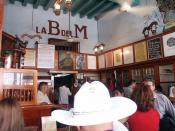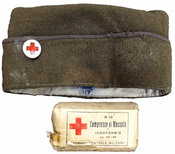Literary scholars often fail to identify the true meanings of the great literature of our time. Someone once said that "In great writing, the style of writing is most important, not the content." The author of this axiom was correct in assuming that style is important in great writing however, this speaker has obviously not read Ernest Hemmingway's novel A Farewell To Arms. In Hemmingway's exceptional novel, he proves that the two literary elements, style and content, are equally important as the other, because in order for a style to be a success, it must have a wholesome structure, and there must also be exceptional content, and Ernest Hemmingway accomplished both goals flawlessly.
Hemmingway begins his novel by introducing us to the protagonist, Frederic Henry. Henry is a young American student who, prior to the outbreak of World War I, was studying in Italy. Just as war broke out, Henry volunteered to be an ambulance driver for the Italian army, and was sent to the northern Alps, to fight against Austria.
The novel's first appearances look like another classic war tragedy, (young kids go off and fight a glorified war, and either die, or return as failures, and learned valuable lessons) however this is not the case. This novel develops into a five-part love story, with the two leading characters Henry, and Catherine, and how a romantic relationship can take place apart from the restrictions of war.
At first, Henry is attracted the British nurse Catherine, and seeks her out as a wartime flirtation. Catherine seeks affection from the opposite sex however, from her past experiences with her fiancé, she is afraid to get too close to Henry. Henry is given a St. Anthony pendant from Catherine, and is sent to the front lines. When seeking shelter in a bunker, and is hit by a mortar, and injures his legs. He is later taken to an Army Hospital, and transferred to an American hospital in Milan. It is not until he is in Milan, that he realizes his true affections with Catherine. Henry realizes that he really loves Catherine and she too sees increasing desire to be with him, and volunteers to work nights, so she can spend time with him. After Henry's successful surgery, he and Catherine are able to go out to restaurants, horse races, and carriage rides. He later proposes to her, but is denied because she feels that they could not be more wed than the currently are; she believed that they could not have any better relationship then what they already have.
In the climax of A Farewell To Arms Catherine informs Henry that she is pregnant. The suspense of the novel builds until Catherine goes into labor. Her labor is very painful for her, and she has a very difficult time, and the doctor must resort to anesthesia. The doctor delivers the baby caesarian however it is dead upon birth. Mrs. Henry (Catherine) was very ill, and would eventually not make it because of the numerous hemorrhages she has had. The last thing Mrs. Henry said before she died was "I'm going to die, I'm not afraid. It's just a dirty trick." Henry watches her die and tries to say good-bye to her dead body, and, ironically, realizes that it is the same thing as talking to a statue, and he walks back to the hotel in the rain.
In Hemmingway's A Farewell to Arms, the reader is given an exceptional style and structure. Hemmingway hooks the reader through his content, and explains it through the borrowed format of many Shakespearian plays. He provides a natural division into five parts, and uses them to their fullest potential. A novel is in many ways the same as a concrete mold. The structure and style of the novel is the form made for the casting of the concrete; the content of the novel is the actual concrete. The Style is what the concrete will look like when completed. In a concrete mold, if any of the three (style, structure, and content) are lacking, then the novel will falter. Good literature must be complete. No single aspect of the novel is most important. The author of the axiom is incorrect because it is in fact the quality of the three most important literary elements that really make or break a novel. [Structure, Style, Content]
